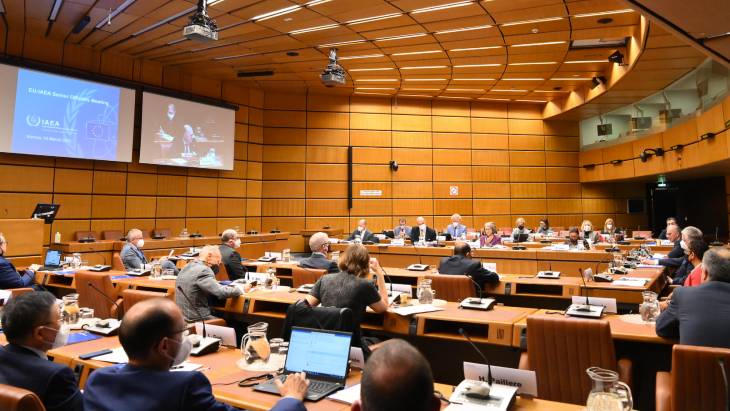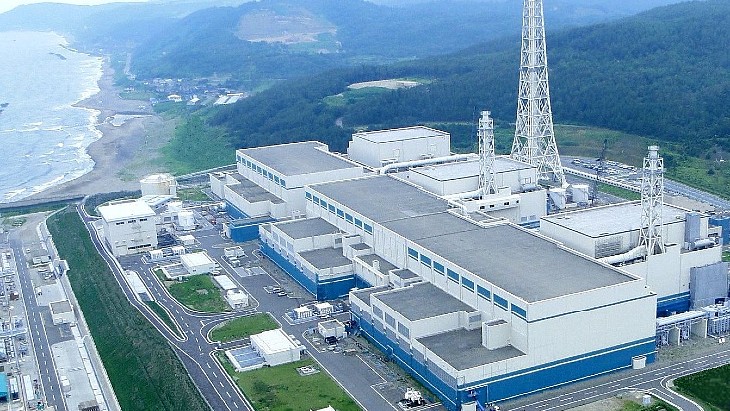The recently launched IAEA Platform on SMRs is intended to be a "one-stop-shop" for SMR development, deployment and oversight, while the European SMR Partnership aims to support the deployment of SMRs in the EU from the early 2030s.
The meeting in Vienna had been postponed from 2020 as a result of the COVID-19 pandemic and was "a discussion about how our important relationship can maintain relevance in these challenging times," said Jacek Bylica, chief of cabinet at the IAEA.
Marjolijn van Deelen, the EU Special Envoy for Non-proliferation and Disarmament, expressed the EU’s "grave concern over the growing nuclear safety and security risks in Ukraine" and backed the IAEA efforts to seek measures to assure the safety of the sites.
"The EU remains categorically committed to defending multilateralism, especially at this time when its foundations are being questioned," she said.
IAEA Director General Rafael Mariano Grossi has been seeking to secure agreed measures in Ukraine to ensure the safety and security of the country's nuclear sites during the current military conflict. He held talks last week in Turkey with the foreign ministers of Russia and Ukraine which were described as "constructive" and was drawing up detailed proposals based on the IAEA's seven 'indispensable pillars' for nuclear safety.
The meeting also covered the role nuclear can play in efforts to tackle climate change with Massimo Garribba, deputy director general of the European Commission's Energy Directorate-General saying: "Climate change involves a complete shift of mindset, a complete change in our economy, and it involves a completely different way of producing energy. We need to accelerate our transition, and we need to decrease our global dependency on hydrocarbons."
The two sides said they were now in the final stages of revising their 2013 Nuclear Safety Cooperation agreement, which supports the IAEA's global nuclear safety projects.
Other areas covered in the talks included nuclear’s non-energy roles, such as in medicine, tackling zoonotic diseases and addressing plastic pollution. The next meeting is due to be held in 2023.






_91467.jpg)
_47120.jpg)
_16439.jpg)





